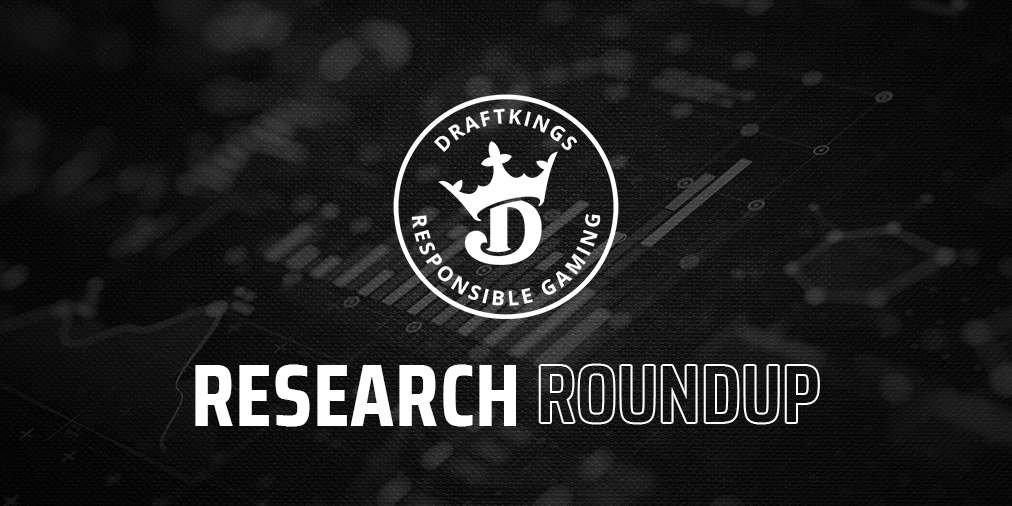Research Roundup: Sports Betting Prevalence in the U.S.
by Chrissy Thurmond, DraftKings Senior Director of Responsible Gaming

This October, new research in the field of sports betting and responsible gaming was published by Bowling Green State University’s Joshua Grubbs, Ph.D. and the University of Nevada’s Shane Kraus, Ph.D. The findings were unveiled at a conference sponsored by the International Center for Responsible Gaming (ICRG), which awarded the research grant to Grubbs and Kraus following a competitive request for applications. The responsible gaming community has been looking forward to better understanding what prevalence looks like in the U.S. in terms of sports betting participation – a key research question posed by Grubbs and Kraus.
Drawing on a nationally representative sample, the researchers found that 17 percent of Americans have bet on sports in their life time, with 6 percent reporting they had bet on sports in the past year. These figures are smaller in comparison with other forms of gaming; lifetime participation in the lottery or casino gaming surpasses sports betting levels, with 72 percent of Americans reporting lottery participation and 47 percent of Americans reporting engaging in casino gaming in their lifetime.
In addition to looking at prevalence of sports betting in the U.S., Grubbs and Kraus explored possible predictors of an individual’s likelihood to engage in sports betting, and how the activity could relate to problem gaming. In terms of predictors, younger males with higher household incomes were more likely to be sports bettors. Interestingly, researchers found that sports bettors have higher rates of gaming “illiteracy” compared to the gaming public as a whole – this points to sports bettors believing common gaming myths or fallacies more than those who do not engage in this activity, e.g., thinking one can detect patterns, or that one is “due” for a win after a series of losses.
I found this insightful, and it also affirmed my belief that customer education is critical to responsible gaming, and an area in which gaming operators can play a key role. Regularly, DraftKings sends a responsible gaming themed email to customers on different topics, which have included myths associated with problem gaming, and how players can use our products responsibly, including using our limit setting tools, which are available to all players. These tools provide options to set personalized deposit, time, and spending limits on play. DraftKings has created a Safer Play Portal, available at dksaferplay.com, which has a wealth of educational topics relating to problem gaming and safer play. And, as part of Responsible Gaming Education Month in September, DraftKings offered a free-to-play pool with questions on safer play topics.
I believe it’s important for operators to prioritize responsible gaming education to dispel myths and foster positive play. Past studies such as Winters and Derevensky (2020) have proposed that sports bettors may experience “delusions of expertise” when considering their knowledge or following of sports. We look forward to continuing our efforts to increase gaming literacy to promote safer play.
I’m proud that DraftKings is playing an active role in supporting researchers at the top of the responsible gaming field. Last year, we announced multiple financial commitments to support evidence-based research related to safer play and problem gaming, including one to the ICRG for the three-year study being conducted at Bowling Green State University. Congratulations and thank you to Joshua Grubbs and Shane Kraus for publishing a first iteration of the research (which you can find here) – your work is expanding the knowledge base critical to informing safer play.

